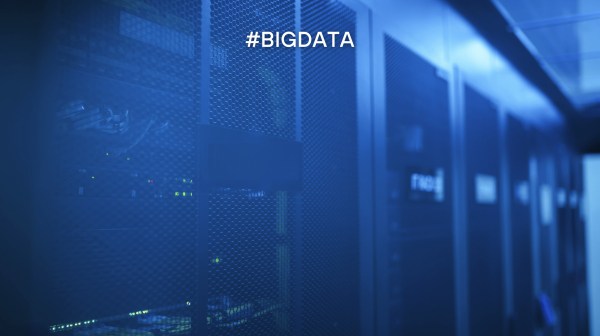Big Data refers to a large set of data that is generated, classified, stored and analysed, and is used in all types of sectors, depending on the size and characteristics of the business. This is reflected in the 2020 dossier on Indicators on the use of Big Data in Spain and Europe, which highlights how 30% of large companies in Spain use this tool.
What is Big Data?
Big data can be defined as the management and analysis of large amounts of data. This data exceeds the limits and capacities of conventional software and, for this reason, the use of advanced technological infrastructures is necessary.
The objective of this tool is to transform the thousands of data generated by devices connected to the internet into useful and easy to handle information, in order to make decisions in real time. Moreover, this technology is a great business opportunity for companies. Mainly, organisations exploit this innovation to understand the needs of their customers and adapt their services and products.
Benefits of the 5 Vs of Big Data in companies
To properly manage large amounts of data, companies need to apply the five dimensions that make up Big Data: volume, velocity, variety, veracity and value.
Volume
It is considered the basis of the 5 Vs of Big Data. In recent years, the volume of data has been growing steadily due to the growth of connectivity and the development of technologies such as the Internet of Things (IoT). Therefore, data intelligence has become a crucial tool for the analysis and management of information, without which it would be impossible to perform many everyday tasks.
The management of big data allows companies to increase their revenues. For example, it is possible to know the life cycle of a customer, which makes it possible to create new sales strategies. Data gives companies the confidence to innovate products, diversify their business and invest in the best options.
In addition, big data analysis facilitates team management in companies, no matter the size of the company. For example, employee productivity can be identified and employee satisfaction can be maintained.
Speed
In addition to handling large volumes of data, companies need to obtain information quickly. In this sense, speed becomes more relevant than handling a lot of data, as it generates greater competitive advantage. Occasionally, it is preferable to have little data in real time than a lot of information slowly.
Speed is a challenge for businesses, as they must learn to capture data and store it before it loses value. This requires hiring skilled professionals, supported by effective technology, and powerful infrastructure such as the 5G network, to identify, select and operate profitable data.
Variety
Variety poses two challenges for businesses. First, they have to process multiple data, coming from a variety of platforms, such as social networks, biometric technologies, M2M data or transaction data. In addition, they have to recognise information presented in different formats: text, audio, image, video, spreadsheets, documents, etc.
Identifying a wide variety of useful data has a great impact on cost reduction for companies. Mainly, because problems can be detected and solved in the long term, this fact generates economic benefits.
Veracity
When processing large volumes of data, companies can see their veracity altered by noise and confusion of information. For this reason, it is essential to create appropriate and functional planning strategies, with the aim of bringing order to the randomness and filtering out data that may be false, erroneous and incomplete with intelligent technology.
Through truthful planning strategies, companies manage to be honest, and avoid significant problems, such as loss of credibility.
Value
This characteristic refers to the useful information that companies can extract from data monitoring, as not all data is useful, nor is it all equally important. This information can help generate business impact, as it can be converted into knowledge and in turn into strategic decisions.
With the help of valuable information, businesses can launch personalised campaigns for their customers, strengthen customer relationships and achieve ambitious goals.
How to apply the 5 Vs of Big Data in companies?
Companies must design a data-driven and data-driven corporate culture to apply the 5 Vs of Big Data. In addition, they must define implementation strategies, set objectives, choose the right sources to capture the data and make decisions based on what is compiled.
The 5 Vs of Big Data can be used in practically all kinds of sectors and areas such as in the finance department to recognise and drive new markets, in healthcare centres to carry out a diagnosis quickly and reliably or even provide personalised user care, and in marketing areas with the aim of creating individualised offers, among others.














